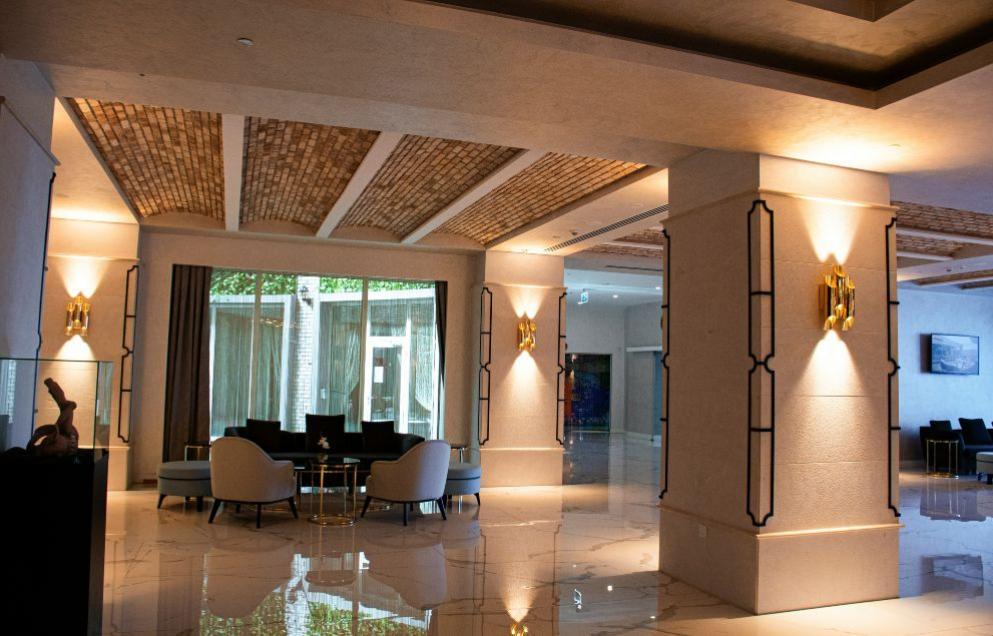How smart buildings are revolutionising the hotel sector
The challenges of the climate crisis have caused new buildings to undergo a technological revolution. It’s a necessary shift, for the operation of buildings accounted for a massive 30 per cent of global energy consumption in 2021, according to the IEA.
Crucially, a large part of building emissions comes from heating and cooling – something that has driven the hotel sector in particular to look towards new technology to find solutions. They’ve led the way in creating smart buildings, which have not only created much-needed efficiencies in energy consumption but also improved customer comfort.

So, what is a ‘smart’ building?
A ‘smart’ or ‘intelligent’ building is one that uses a building management system (BMS). This is a control system that monitors things like temperature, air flow, power use, and lighting. It does this via sensors placed around the building, as well as by monitoring data sent to a centralised server with a database. These systems can also be localised, meaning they can be isolated to a specific space.
The building owner can then set a range of temperature, say between 15°-20°, and if one of the sensors detects an abnormality, or data falls outside that range, it will activate the necessary programme to return it within range. In practice, this means if it gets too cold the heaters will come on.
How do they maximise efficiency?
One of the key areas of energy waste within a hotel is unoccupied areas. An example is Travelodge, which while running at around a 92 per cent occupancy rate throughout the year, found many of its customers are often out of the room during the daytime and therefore don’t require the lights or heating to be on.
To tackle this, in 2015 the Travelodge group started to monitor light use in shared areas. By implementing a system that could monitor occupancy via sensors, they could turn lights off in empty corridors or shared spaces and reduce energy waste.
While that helped, a significant 70 per cent of Travelodge’s energy spend goes on bedroom energy, and of that, 90 per cent is used for heating and cooling. By monitoring and analysing patterns of energy use using AI and machine learning, the BMS in their hotels began to predict when rooms were likely to be occupied, when people were sleeping or when they were empty, and adjusted the systems accordingly.
The advantages of using these systems can be significant. A study by the European Commission’s Joint Research Centre demonstrated their potential, estimating that 323MWh per year could be saved in a 100-room hotel from optimising the heating, ventilation, and air conditioning.
Can they ensure customer comfort?
Travelodge is not the only hotel chain implementing these smart systems. Accor has installed non-intrusive room monitoring across its portfolio, while Hyatt and Starwood hotels use the Honeywell Incomm thermostat.
But guest choice has not been ignored. The Honeywell Incomm thermostat incorporates a ‘VIP mode’, allowing guests to override the usual temperature limits. The Hilton Connected Room platform has further enhanced this by giving customers the ability to control their own heating, cooling, and ventilation from their phone via an app. They state that two-thirds of guests are more likely to stay at a hotel with the Connected Room system than one without it.
What are the challenges?
The upfront cost is a barrier for smaller hotel chains, though that cost can be recouped through energy efficiencies over time. While intelligent buildings are virtually the standard in new construction, it can also be difficult in some older buildings to retrofit, with the need to control airflow for example, which can be difficult with the wrong type of windows.
As with all technologies, there is always a certain resistance to change. Hotel owners may feel occupancy monitoring is too intrusive for their customers, or over-complicated. But as the technology becomes more common, accessible, and the installation costs inevitably come down, it’s likely smaller hotels will start to see the benefits.
Systems that future-proof hospitality
Making buildings sustainable requires innovative technology. But it’s not just about reducing carbon emissions, or even about saving money. Customers want hotels to be sustainable and will choose eco-friendly options. According to research from Marriott Bonvoy, 63 per cent said that the environment had some impact on their travel planning. Many hotels, particularly at the higher end of the market, now display their sustainability credentials on their websites with good reason.
And as the technology evolves and buildings become ever-smarter, the rest of the hospitality industry can look toward the paths forged by hotel chains, testing the waters of these kind of solutions so that everyone may ultimately enjoy the benefits.